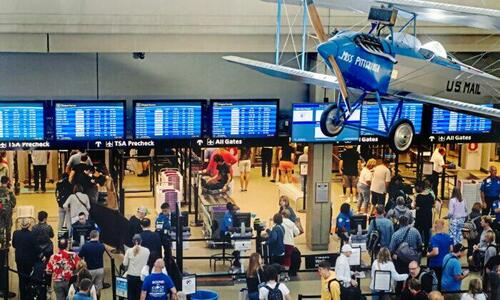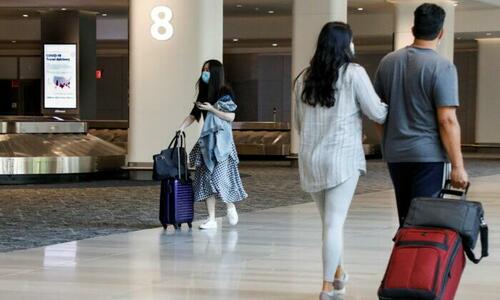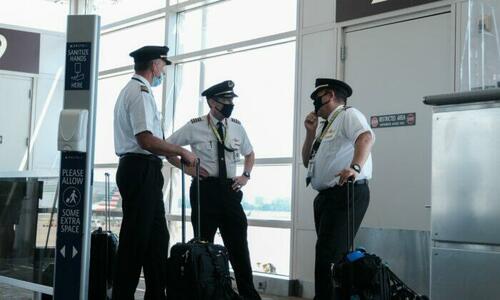Airline Chaos Could Persist Until 2024, Despite Efforts To Cure Woes
Authored by Janice Hisle via The Epoch Times (emphasis ours),
After a record-breaking summer of angst, aggravation, and anger at America’s airports, little relief may be in sight.
The problem came into sharper focus during the past few weeks with airline complaints in May and June soaring 270 percent above pre-pandemic levels.
While airlines and federal officials recently announced improved customer service and information-sharing practices with travelers, critics say those measures amount to baby steps. They advocate bigger, more meaningful strides to alleviate the chaos and restore order.
“When we look at the misery that we’ve seen this last summer, the thought is: How long could it last?” Jay Ratliff, an aviation expert, told The Epoch Times on Sept. 9.
Ratliff said that the problems predate the COVID-19 pandemic, are more complex than many people realize, and may persist until 2024.
Pandemic Exposed Flaws In System
While the COVID-19 pandemic was in full swing and air travel slowed to a trickle, consumer complaints and demands for refunds and other compensation burgeoned.
From January 2020 to June 2021, the the Department of Transportation received 124,823 airline complaints; 83 percent involved refunds. In contrast, the agency received just 15,324 airline complaints in 2019, a DOT analysis says; only about 10 percent of that year’s disputes focused on refunds.
The number of DOT complaints is especially remarkable because, airline passengers would customarily lodge complaints directly with airlines and were unaware that they could escalate their concerns to the DOT, Ratliff said.
However, the federal agency’s ability to intervene is somewhat limited because there currently is “no requirement for an airline or a ticket agent to compensate passengers holding non-refundable tickets if they cancel air travel,” the DOT says.
When the pandemic hit, airlines’ systems were overwhelmed with an unprecedented influx of refund requests. The air carriers also didn’t have enough money to make good on those requests quickly.
“Passengers entitled to refunds who normally would have received them promptly were left waiting or, in other cases, denied refunds and offered vouchers or travel credits instead,” the DOT said. Some customers faced circumstances that prevented them from taking advantage of the vouchers or travel credits. They ended up with “no compensation at all,” the DOT said.
Ripple effects of the refund requests spread as the federal government, ticket agents, and credit card companies mediated disputes with disgruntled airline customers.
Staff Shortage Woes
Meanwhile, even though the federal government provided emergency funding to keep airlines afloat, the companies were forced to cut costs. They furloughed and laid off tens of thousands of employees. As of last year, U.S. airlines employed 4.8 million full-time employees, compared to the pre-pandemic staffing level of almost 5.4 million employees.
Many highly-compensated employees fell off the rosters because they were offered early retirement packages or quit due to stressful conditions.
Airline professionals such as pilots and flight attendants require extensive training; replacing them is therefore time-consuming and challenging, Ratliff said.
Some people theorize that airlines fired large numbers of pilots for refusing to take the government- and airline-mandated COVID-19 inoculations.
But industry sources doubt that. They say solid statistics are hard to come by. But they told The Epoch Times that many pilots remained employed because they either got the jab or avoided it via a religious exemption.
Medical conditions are probably responsible for grounding more pilots than vaccine-mandate firings ever did, the sources said. They blame long-term illnesses, some possibly caused by side effects of the shots or consequences of COVID-19.
In addition, the commercial aviation industry was already facing a pilot shortage several years before the pandemic. That’s because recruiting of pilots from the military, a primary feeder system for commercial airlines, has declined.
Read more here…
Tyler Durden
Tue, 09/13/2022 – 18:10
via ZeroHedge News https://ift.tt/9QyrJut Tyler Durden


